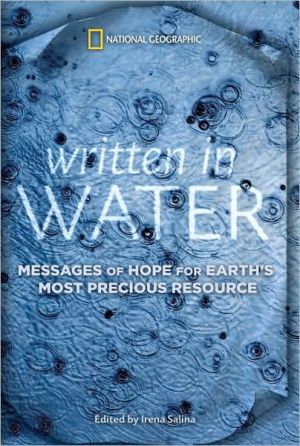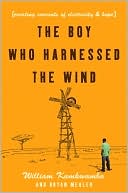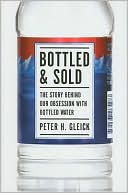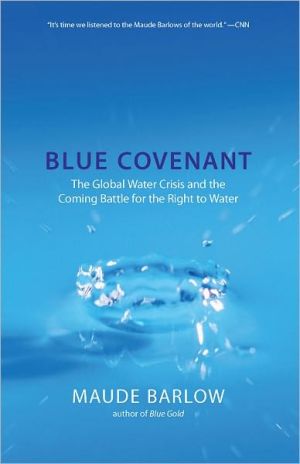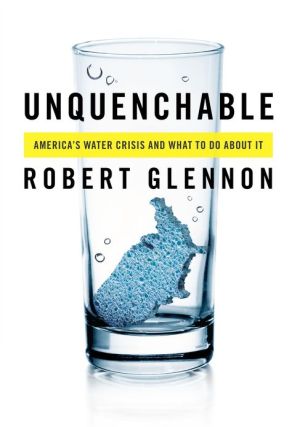Not a Drop to Drink: America's Water Crisis (and What You Can Do)
Water. We can't live without it. Not a Drop to Drink sounds the alarm, detailing the current state of emergency facing the U.S. water supply. From the parched High Plains to corporate boardrooms, Ken Midkiff explores water wars, privatization, American agriculture, and global warming. And what we can do to get a glass of water.
Search in google:
In some parts of the United States, water is disappearing as consumption exceeds supply. In other parts, battles are raging that will determine both the cost and the quality of a simple glass of water. Not a Drop to Drink comprehensively examines the imminent crisis of America’s water supply and explains what readers everywhere can do about it. In this straightforward, story-driven book, Ken Midkiff talks to crusty ranchers in Topeka, suited lawyers in Atlanta, and smooth-talking politicians in Los Angeles and Washington, D.C. Using regional and national case studies, he analyzes and presents the roots of the problem, and then says what we must do to solve it. Written by one of the foremost experts on America's water supply, Not a Drop to Drink is a must-read book for concerned citizens nationwide. Publishers Weekly Though it offers a litany of damning facts about America's state-of-emergency water crisis, this is pretty dry reading. Midkiff (The Meat You Eat) earnestly marshals plenty of cautionary information: once-flush aquifers are being rapidly depleted, most precipitously the Ogallala, which stretches from Nebraska to the Texas panhandle, while the Colorado (in Texas) and Rio Grande rivers vanish into dry riverbeds before they reach the Gulf of Mexico. Water from the tap in Atlanta has had to be boiled to make it potable, while farmers' wells in New Mexico are tapped out. Midkiff frets that the privatization of municipal water services will raise household bills for private profit, and faults outdated, lobby-driven farm subsidies for encouraging "water-guzzling" rice crops in California's Central Valley, which was once a desert, before the lure of underpriced water transformed it into an agricultural cornucopia. The author, former director of the Sierra Club's clean water campaign, doesn't put stock in desalinization plants or the meltwater of towed glaciers, believing that conservation is the most viable path to sustaining water supplies. His call for immediate collective effort makes good sense, even if expressed with bromides like "if you're not part of the solution, you're part of the problem." (Apr.)Copyright 2006 Reed Business Information.
Foreword Robert F. Kennedy, Jr. ixIntroduction: The Current State of Emergency Facing the American Water Supply xviiTaking What Is Not There: Promises of Hypothetical Water in the West 1The Wells Run Dry: The Time Is Up in the High Plains 17Crops Don't Grow Without Water: The Uncertain Future of American Agriculture 35Water Wars: Regional Battles Sweep the Nation 57Privatization: The Risks of Putting Our Water Supply into Corporate Hands 91Global Warming: The Wild Card That Could Leave Us Flooded or Parched 115Technological Solutions: The Skyrocketing Cost of a Glass of Water 135Afterword: Immediate Collective Action Is Our Only Hope 161Acknowledgments 167Notes 169Index 187About the Author 197
\ Publishers WeeklyThough it offers a litany of damning facts about America's state-of-emergency water crisis, this is pretty dry reading. Midkiff (The Meat You Eat) earnestly marshals plenty of cautionary information: once-flush aquifers are being rapidly depleted, most precipitously the Ogallala, which stretches from Nebraska to the Texas panhandle, while the Colorado (in Texas) and Rio Grande rivers vanish into dry riverbeds before they reach the Gulf of Mexico. Water from the tap in Atlanta has had to be boiled to make it potable, while farmers' wells in New Mexico are tapped out. Midkiff frets that the privatization of municipal water services will raise household bills for private profit, and faults outdated, lobby-driven farm subsidies for encouraging "water-guzzling" rice crops in California's Central Valley, which was once a desert, before the lure of underpriced water transformed it into an agricultural cornucopia. The author, former director of the Sierra Club's clean water campaign, doesn't put stock in desalinization plants or the meltwater of towed glaciers, believing that conservation is the most viable path to sustaining water supplies. His call for immediate collective effort makes good sense, even if expressed with bromides like "if you're not part of the solution, you're part of the problem." (Apr.)\ Copyright 2006 Reed Business Information.\ \


